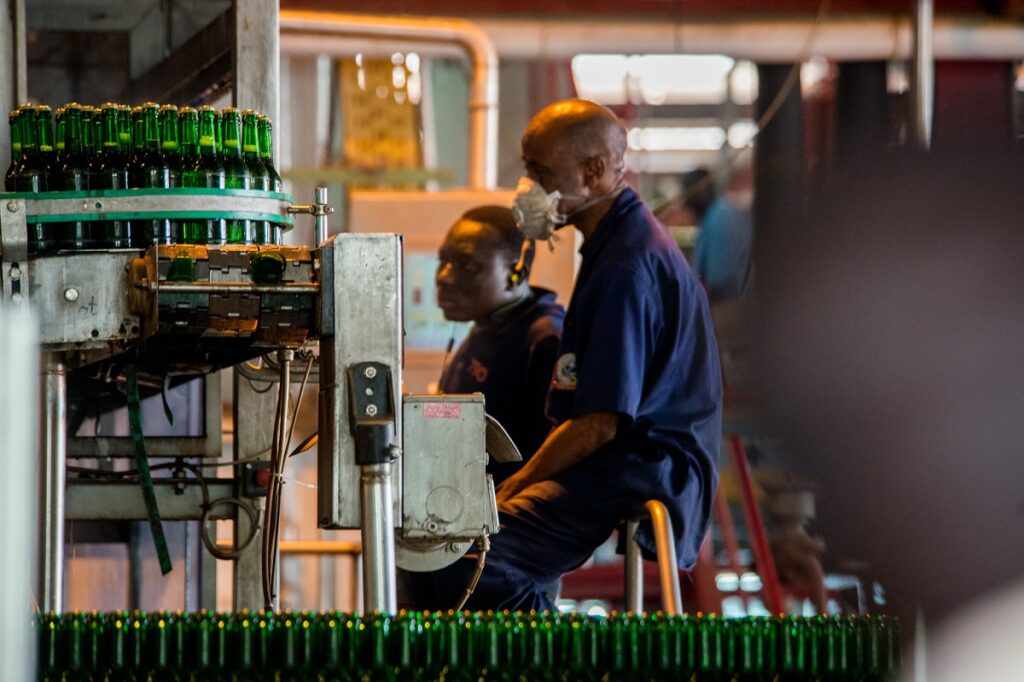- AfDB’s indicative operational program for its South Africa strategic plan 2023-2028 amounts to $1.54 billion.
- The Bank will strengthen the governance framework to create favourable conditions for implementing infrastructure projects.
- Through the private sector, AfDB’s interventions will focus on improving the energy, transport, water, and sanitation industries.
The African Development Bank (AfDB) has initiated a five-year plan to stimulate growth in South Africa, the continent’s most advanced economy. Dubbed the Country Strategy Paper (CSP) 2023-2028, AfDB has outlined two main lines of action. The Bank aims to enhance governance while deploying strategies to revamp the private sector.
Concerning governance, CSP 2023-2028 will support the South African government in its efforts to address persistent structural challenges. This approach aims to promote industrialisation and establish a faster, more inclusive growth trajectory to combat poverty.
According to the AfDB, its indicative operational program for 2023-2028 amounts to $1.54 billion. It comprises six sovereign operations totalling $887 million and seven non-sovereign operations totalling $654 million. The sovereign operations selectively support four focal sectors, focusing on relatively large projects to deliver transformation at scale and impact.
AfDB on South Africa’s economic governance
In the priority area, the AfDB will support efforts to improve economic governance and boost private investment. This move aligns with the country’s plan to promote inclusive growth and create decent jobs. Furthermore, it will help broaden access to essential social and economic services, improve skills and employability, and increase resilience to external and climate shocks.
According to data from Trading Economics, South Africa’s unemployment rate stood at 32.6 per cent as of June 2023. This figure was slightly lower than market projections and the rate of 32.9 per cent in the previous quarter. It marked the lowest rate since the first quarter of 2021, as the number of unemployed persons decreased by 11,000 to 7.9 million. During the quarter in focus, employment increased by 154,000 to reach 16.346 million.
CSP 2023-2028 states that AfDB will strengthen South Africa’s governance framework. This move will create favourable conditions for implementing critical infrastructure projects. Moreover, its support will help reduce costs and contribute to the success of the private sector by assisting the country in addressing regulatory barriers.
Read also: Why South Africa’s power crisis could last a long time
Energy production by private sector
Among the expected outcomes is a reduction in the budget deficit from 4.2 per cent of GDP in 2022-2023 to three per cent in FY2027/28. Additionally, energy production by the private sector is expected to increase from the current 100MW to over a gigawatt in 2028.
The South African economy grew by 0.4 per cent in the first quarter of this year, according to the IMF. This slow growth is due to problems like frequent power outages, unpredictable commodity prices, and global shocks. South Africa has been facing rolling power cuts because of poor management of its state-owned utility, Eskom.
According to the IMF, South Africa must change for a better economy with more jobs, inclusivity, and resilience. To do this, they should work on improving the country’s energy supply and transportation systems and make it easier for businesses to invest. They also need to fix problems in the job market and deal with issues like crime and corruption.
AfDB’s new CSP 2023-2028 will see 700 new SMEs access funding as part of the five-year reforms. Among these benefiting SMEs, at least 210 women entrepreneurs while 70 will be those owned by young people by 2028.
AfDB’s plan for South Africa’s private sector
In the second priority area, developing the private sector, the AfDB aims to improve access to high-quality infrastructure. The Bank’s CSP 2023-2028 aims to enhance productivity and strengthen competition to promote private sector-driven growth. Additionally, this plan seeks to enhance job creation through transformative projects.
AfDB’s interventions will primarily focus on the energy, transport, water, and sanitation sectors. By improving these types of infrastructure, the AfDB will contribute to reducing the cost of economic activity, increasing productivity, and strengthening South Africa’s competitiveness at all levels. These interventions will also enable women to access basic services and economic opportunities.
Read also: Why Africa must rethink insurance as climate change takes a toll.
Tackling the effects of climate change on the economy
Finally, there will be an emphasis on protecting infrastructure from the effects of climate change. This will be achieved by strengthening sustainability and resilience, a goal at the forefront of all infrastructure projects.
A recent study indicates that without adopting climate change mitigation strategies in South Africa, GDP per capita could drop by 11 per cent by the close of the century.
“Climate change creates new threats and opportunities for our societies. It is up to policy-makers and community administrators to gather the necessary resources and reap the potential benefits to contain the damage of climate change,” notes Soheil Shayegh, the lead author of the research team at Fondazione CMCC and EIEE.
In particular, the AfDB projects that its initiatives in the transport sector will help increase the market share of rail freight from 26.8 percent in 2023 to 28 percent in 2028. It will also complete the construction of 38 kilometres of tunnels by 2028.
As of June this year, the AfDB’s active portfolio in South Africa comprised 23 projects with a total funding of $7 billion.
